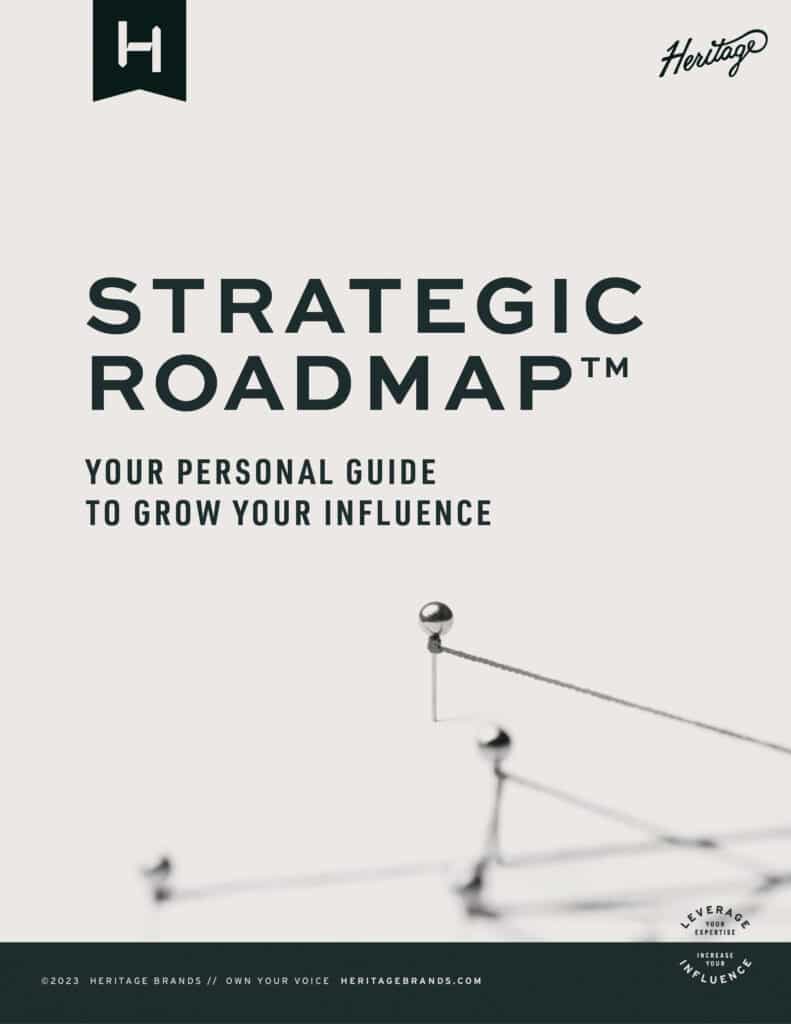“What’s in a name?”: The backstory of Heritage Brands
We do a lot of work here at Heritage helping our clients amplify their brands online and connect with their target audiences through meaningful content, delivered in a timely manner, published on the platforms most relevant to our clients’ brands and their audiences. Put more simply, we help leading brands (whether companies, nonprofits, or public figures) determine what to say and when and how to say it, and then we typically end up doing the “saying” on their behalf, too. When this process is done well, over time, then brand equity is created – the brand is more valuable than it was before, thanks to the deepened connections it now has with its target constituencies.
In my MBA marketing classes at the University of South Carolina, we learned that “heritage brands” were brands that possessed higher-than-average levels of brand equity, typically derived from operating for a longer-than-average period of time within their market. Classic examples of these “heritage brands” that we considered included Beretta (a 496-year-old company, founded in 1526), Filson (125 years old), Hermès (185 years old), and pretty much anything from Britain that holds a Royal Warrant – think Burberry, Barbour, Land Rover, etc.
Inspired by the strength and legacy of these and other “lower-case-h” heritage brands, in 2018 we started the Heritage Brands Group with a mission to help aid and empower brands in their journeys toward becoming heritage brands themselves. But without a hundred years to wait around to develop their brand equity naturally (or a time machine to go back to Northern Italy in 1526, à la Beretta), brands of today desiring meaningful and lasting growth have to be intentional about how they think about the creation of brand equity.
How Brand Equity is created (or destroyed) in 2022
It has been a process, but over the last five years we’ve measured, tested, and experimented, and with hundreds of thousands of hours worked, words written, posts posted and campaigns managed, everything we’re learning points back to this one, fundamental truth: that today, in 2022, brand equity can be created – or destroyed – faster than has ever been possible before, thanks to the internet and to the power of the digital tools and platforms we all engage with every day.
Far from requiring centuries of profitable operations to develop powerful brand equity, brands today can pop up seemingly overnight and go on to rapid market dominance at a speed never before seen. Google…Lululemon…Tesla…or, to consider a public figure’s “brand,” Barack Obama…all of these brands are household names that reached a measurable level of market dominance in their fields in under two decades. (Google hit a $100 billion market cap just seven years after launch, for example, and twenty years before he was elected President of the most powerful nation on earth, Obama was an unknown college graduate working working as a community organizer for a church project on Chicago’s South Side.)
These brands created brand equity seemingly overnight, and while innumerable inputs certainly impacted those outcomes, the power of the internet – and of digital media to connect people and to project reputation and brand more widely than ever before – played a leading role in the lightning-fast development of brand equity for each one of these brands.
Why TRUST matters more than “impressions” or “clicks” — and why we’re not a “marketing company.”
Researching the factors that accelerate the growth of brand equity for brands today – and seeking to leverage those strategies on behalf of our clients and their brands – is what drives our team here at Heritage every day. We’re often mistaken for a “marketing company,” but I’ve grown to realize that, far more than a “marketing company,” Heritage is really a “trust company” – we architect (and then implement) strategies that create trust between brands and their stakeholders. We deal in brand management, digital brand maintenance and development, online reputation management, and online influence(r) strategy, and we do everything we do with an eye toward deepening the connection between the brands we manage and their constituencies and stakeholders. And that means all of our work drives back to trust. How do stakeholders perceive you and your brand? (Whether those stakeholders, for you, are prospects, customers, employees, voters, clients, directors, shareholders, or something else.) How well is your brand’s reputation promoted – and protected! – online? How effectively is it being developed and enhanced through your digital outreach strategy + tactics? These and others are the questions we consider every day on behalf of our partners and clients.
“Digital advertising” and paid digital media spend, a huge driver of growth for brands in the 2010’s, won’t be the difference-maker anymore in the 2020’s. The game has changed. Meta’s financial performance lately, and the correlated impact of Apple’s new privacy measures and iOS changes, are but one signal of the larger changes sweeping through the “digital marketing” industry. While marketing and advertising will continue to have a role in the maintenance and amplification of brands moving forward, our core belief here at Heritage is that success for brands and their reputations online, in this decade and beyond, will require a return to “the basics.” And those basics are: (1) effective storytelling, (2) authentic human engagement, and (3) trust. Brands today – whether we’re talking about a CPG brand, a nonprofit, or a public figure’s “personal” brand – must take an active role in the telling of their own story (particularly through organic media, both earned and owned), and they must engage organically with other stakeholders online as they undertake that storytelling process.
The days of cheap hacks and shortcuts like “posting and ghosting,” or leveraging a virtual assistant to post irrelevant and unhelpful “content” online in a feeble attempt to “promote your brand,” are long gone – that level of effort simply won’t pierce through the noise anymore. What’s required now is that back-to-basics approach built on a bedrock foundation of excellence in storytelling and authenticity in engagement. Clicks and paid ads are out, creativity and excellence are in. What’s old is new again as trust returns to center stage, and as brands begin to take a reputation-first approach to their online activity and communications planning.
By telling their story well and engaging with their stakeholders actively and authentically, brands will develop the TRUST that is so critical for the development and maintenance of their brand equity. We all know how important trust is in our day-to-day human relationships, but Deloitte’s new research around trust’s connection to brand goals and business outcomes has helped drive a lot of our understanding of how to apply these traditionally personal-relationship-focused trust concepts to businesses and brands. (There is a great deal more to say about Deloitte’s major investment in this new practice area, which they are calling “The Future of Trust,” but we’ll dive more into that in the next piece in this series.)
Looking Forward – our series on Trust and Reputation continues
Our clients are the first-level recipients of the fruits of our learning as we’ve started layering new ideas around reputation management and “the digitization of expertise” into the work we’ve always done in content development, digital publishing, social media channel management, and influencer marketing. But we want to share what we’re learning with others, at least in part because we’re so tired of “marketing-as-is” and the “business-as-usual” approach we see so many other people in our space peddling.
For real trust to be developed – especially in an age of misinformation, disinformation, and raw data masquerading as “insight” – brands need to go old-school with their digital strategy, and focus less on impressions, clicks, and follower count. Instead, they need to focus on the digitization of their reputation, and lean into all the qualitative (and quantitative) factors that play a role in that process. Stay tuned as we release future articles in this series, and we’ll go into more detail around just what that can (and should) look like for any brand or entity looking to build a lasting foundation for success and long-term brand equity through the digital tools of our modern age.
– Franklin McGuire Jr.

